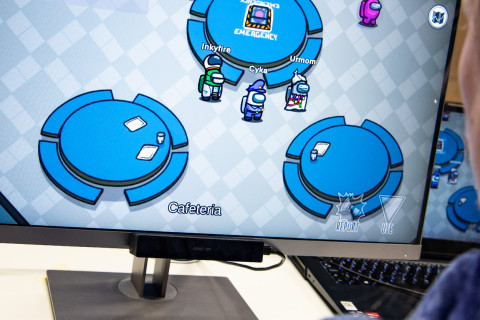Digital gaming is becoming more and more popular among young people. Researchers at the University of Eastern Finland are currently studying whether group-based digital gaming can improve the prospects, well-being and life management of young people at risk of social exclusion in the North Savo region.
Finland’s nationwide School Health Promotion Study from 2021 shows that 36.7% of students attending vocational education in the North Savo region play digital games almost daily, and 63.8% monthly. The downsides of gaming can include too little sleep and too little exercise. At worst, digital gaming can lead to problems in social interaction, and even to social exclusion. However, research shows that digital gaming has positive effects on, for example, the mental health and social relations of young people.
The ESF funded Game Over? – Continue! -project to be carried out in 2023 will focus on gaming-related group activities and their effects on well-being through action research. The project, led by Savonia University of Applied Sciences, organises small group activities for the region’s young digital gaming enthusiasts who have either chronic absenteeism, or who have dropped out of vocational school entirely. The group activities include, for example, game programming, teamplay training , and organising gaming events.
This can boost young people’s confidence in seeing gaming as something more than just a pastime
Riitta Vornanen
Professor
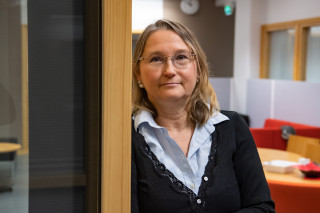
Group activities boost confidence in studies and work
In the project, researchers at the University of Eastern Finland will focus especially on the social and physiological effects of group-based gaming on the well-being, social relations, functional capacity and health of young people.
“As researchers, we are interested in, e.g., how a sense of community affects young people who are interested in gaming. The group activities aim at avoiding situations where young people remain in secluded in their homes, playing games alone. Instead, the idea is to involve them in the activities and get them to organise events. This can boost young people’s confidence in seeing gaming as something more than just a pastime,” says Professor Riitta Vornanen of the Department of Social Sciences.
Young people participating in the group activities will be practising skills that support their engagement in studies and with the world of work. They will also be able to influence what kind of games and themes are being discussed in joint meetings. Based on preliminary surveys, young people are particularly interested in game streaming, i.e., sharing their live gaming session over the internet with online followers.
“Watching streams is popular, and there are active gaming streamers also in Kuopio. Becoming a gaming streamer is seen as a dream profession,” Postdoctoral Researcher Paavo Vartiainen says, assessing young people’s enthusiasm for game streaming.
And since young people are interested in game streaming, streams have been used to recruit them to the group activities.
Gaming streamers and e-athletes are today’s role models for young people.
Paavo Vartiainen
Postdoctoral Researcher
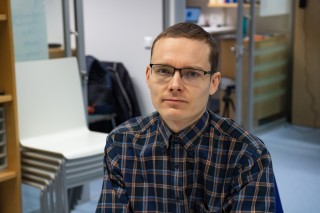
Young people’s well-being is studied comprehensively using multiple methods
The effects of the group activities on young people’s well-being are explored using a variety of methods in a multidisciplinary study by researchers at the Department of Technical Physics and the Department of Social Sciences at the University of Eastern Finland. A survey questionnaire investigating young people’s psychosocial situation will be conducted at the beginning and end of the group activities. Interviews, on the other hand, will be used to examine young people’s experiences of their social relations, and their subjective safety and well-being.
“By means of survey research, we can analyse young people’s depression, anxiety, addiction to online gaming, health, and social relations,” Postdoctoral Researcher Siiri-Liisi Kraav explains.
Riitta Vornanen points out that the current study provides a unique opportunity to explore the entirety of young people’s digital and real-life relationships.
Heart rate variability is an objective indicator of the body’s overall burden and recovery.
Mika Tarvainen
Senior Researcher
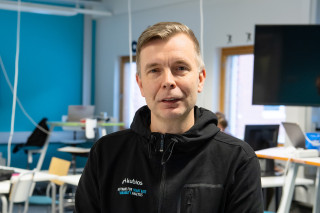
Physiological measurements provide insight into changes in well-being
In Finland, recent years have seen several projects exploring how digital gaming could open up opportunities to improve the well-being and functional capacity of young people who are at risk of social exclusion. What makes the present project unique is the fact that researchers will be analysing young people’s physiological well-being by measuring their heart rate variability and sleep quality.
The physiological measurements will be carried out among those participating in guided gaming activities over a period of around two weeks at the beginning and end of the project.
“Heart rate variability is an objective indicator of the body’s overall burden and recovery. Young people typically have high heart rate variability, but problems with mental health and stress can lower it,” Senior Researcher Mika Tarvainen says.
Research-grade activity sensors worn on the wrist will provide data on young people’s daytime activity and sleep quality.
“We are particularly interested in young people’s subjective experiences and how they perceive changes in their well-being in the course of the group activities. Do they, for instance, have a more positive view of their health, and is this linked to heart rate variability?” Doctoral Researcher Samu Sorola asks.
It is interesting to see what ‘extra’ relations forged in digital gaming bring to young people’s social relations in general.
Siiri-Liisi Kraav
Postdoctoral Researcher
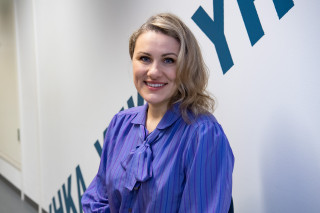
New information on the importance of relations forged online to the entirety of young people’s social relations
The Game Over? – Continue! -project is engaged in action research. According to Professor Pasi Karjalainen, this brings its own challenges to research. Karjalainen is the Director of the HUMEA Lab where the measurements will be conducted. “We are trying to influence the target of our research while we are studying it.”
This is why the scientists were keen to include the perspective of social sciences. In her earlier research, Siiri-Liisi Kraav has examined social relations largely from the perspective of loneliness, and this aspect also emerges in the current study.
“Digital gaming can be very social and may lead to lifelong friendships. However, there are also those who are left alone. It is interesting to see what ‘extra’ relations forged in online gaming bring to young people’s social relations in general,” Kraav says.
The researchers emphasise that group activities, even if short-term, can have significant effects on the well-being of those involved.
“Young people are in a sensitive age and can go through more changes in a year than older age groups go in 20 years. The period from 15 to 18 years of age is very significant for young people, whereas for adults, a couple of years may run by quickly,” Karjalainen says.
According to Kraav, adolescence is a sensitive time also when it comes to the development of mental health disorders. “If we can bring in something positive at this point, it is possible to turn things around, even in a short period of time.”
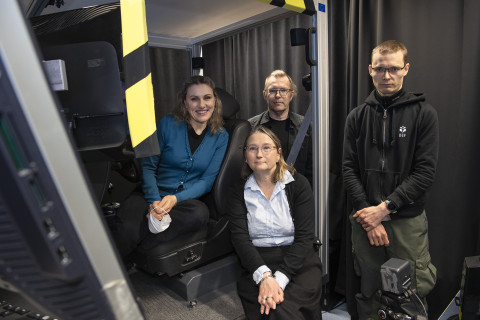
-
The project is run by Savonia University of Applied Sciences, the University of Eastern Finland and HUMAK University of Applied Sciences.
-
The project partners are Savon Diginatiivit Ry, Pelituki, City of Kuopio Youth Services, 3D Talo Oy, Savo Municipal Training and Education Consortium, City of Kuopio upper secondary schools, City of Kuopio Employment Services (Navigaattori), Ohjaamo centres, and Youth Work Path Project, Elävä Foundation and Savo Vocational College.
-
The project’s research package is carried out by Siiri-Liisi Kraav, Paavo Vartiainen, Samu Sorola, Nina-Elise Koivumäki (HUMAK), Ville Nissinen (HUMAK), Mika Tarvainen, Pasi Karjalainen and Riitta Vornanen.
